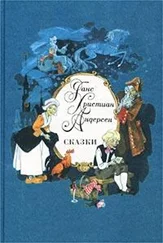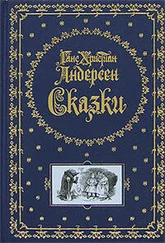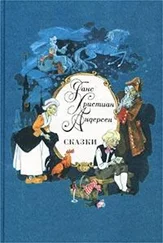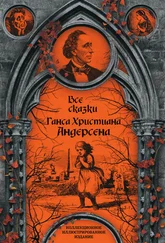Ганс Андерсен - O. T., A Danish Romance
Здесь есть возможность читать онлайн «Ганс Андерсен - O. T., A Danish Romance» — ознакомительный отрывок электронной книги совершенно бесплатно, а после прочтения отрывка купить полную версию. В некоторых случаях можно слушать аудио, скачать через торрент в формате fb2 и присутствует краткое содержание. Жанр: foreign_prose, literature_19, Европейская старинная литература, foreign_antique, на английском языке. Описание произведения, (предисловие) а так же отзывы посетителей доступны на портале библиотеки ЛибКат.
- Название:O. T., A Danish Romance
- Автор:
- Жанр:
- Год:неизвестен
- ISBN:нет данных
- Рейтинг книги:4 / 5. Голосов: 1
-
Избранное:Добавить в избранное
- Отзывы:
-
Ваша оценка:
- 80
- 1
- 2
- 3
- 4
- 5
O. T., A Danish Romance: краткое содержание, описание и аннотация
Предлагаем к чтению аннотацию, описание, краткое содержание или предисловие (зависит от того, что написал сам автор книги «O. T., A Danish Romance»). Если вы не нашли необходимую информацию о книге — напишите в комментариях, мы постараемся отыскать её.
O. T., A Danish Romance — читать онлайн ознакомительный отрывок
Ниже представлен текст книги, разбитый по страницам. Система сохранения места последней прочитанной страницы, позволяет с удобством читать онлайн бесплатно книгу «O. T., A Danish Romance», без необходимости каждый раз заново искать на чём Вы остановились. Поставьте закладку, и сможете в любой момент перейти на страницу, на которой закончили чтение.
Интервал:
Закладка:
“I love nature in Jutland!” exclaimed Otto. “The open sea, the brown heath, and the bushy moorland. You should see the wild moor in Vendsyssel—that is an extent! Almost always wet mists float over its unapproachable interior, which is known to no one. It is not yet fifty years since it served as an abode for wolves. Often it bursts into flames, for it is impregnated with sulphuric gas,—one can see the fire for miles.”
“My sister Sophie ought to hear all this!” said Wilhelm. “You would make your fortune with her! The dear girl! she has the best head at home, but she loves effect. Hoffman and Victor Hugo are her favorites. Byron rests every night under her pillow. If you related such things of the west coast of Jutland, and of heaths and moors, you might persuade her to make a journey thither. One really would not believe that we possessed in our own country such romantic situations!”
“Is she your only sister?” inquired Otto.
“No,” returned Wilhelm, “I have two—the other is named Louise; she is of quite an opposite character: I do not know of which one ought to think most. Have you no brothers or sisters?” he asked of Otto.
“No!” returned the latter, with his former involuntary, half-melancholy expression. “I am an only child. In my house it is solitary and silent. My grandfather alone is left alive. He is an active, strong man, but very grave. He instructed me in mathematics, which he thoroughly understands. The preacher taught me Latin, Greek, and history: two persons, however, occupied themselves with my religious education—the preacher and my old Rosalie. She is a good soul. How often have I teased her, been petulant, and almost angry with her! She thought so much of me, she was both mother and sister to me, and instructed me in religion as well as the preacher, although she is a Catholic. Since my father’s childhood she has been a sort of governante in the house. You should have seen her melancholy smile when she heard my geography lesson, and we read of her dear Switzerland, where she was born, and of the south of France, where she had travelled as a child. The west coast of Jutland may also appear very barren in comparison with these countries!”
“She might have made you a Catholic! But surely nothing of this still clings to you?”
“Rosalie was a prudent old creature; Luther himself need not have been ashamed of her doctrine. Whatever is holy to the heart of man, remains also holy in every religion!”
“But then, to erect altars to the Madonna!” exclaimed Wilhelm; “to pray to a being; whom the Bible does not make a saint!—that is rather too much. And their tricks with burning of incense and ringing of bells! Yes, indeed, it would give me no little pleasure to cut off the heads of the Pope and of the whole clerical body! To purchase indulgence!—Those must, indeed, be curious people who can place thorough faith in such things! I will never once take off my hat before the Madonna!”
“But that will I do, and in my heart bow myself before her!” answered Otto, gravely.
“Did I not think so? she has made you a Catholic!”
“No such thing! I am as good a Protestant as you yourself: but wherefore should we not respect the mother of Christ? With regard to the ceremonials of Catholicism, indulgence, and all these additions of the priesthood, I agree with you in wishing to strike off the heads of all who, in such a manner, degrade God and the human understanding. But in many respects we are unjust: we so easily forget the first and greatest commandment, ‘Love thy neighbor as thyself!’ We are not tolerant. Among our festivals we have still one for the Three Kings—it is yet celebrated by the common people; but what have these three kings done? They knelt before the manger in which Christ lay, and on this account we honor them. On the contrary, the mother of God has no festival-day; nay, the multitude even smile at her name! If you will only quietly listen to my simple argument, we shall soon agree. You will take off your hat and bow before the Madonna. Only two things are to be considered—either Christ was entirely human, or He was, as the Bible teaches us, a divine being. I will now admit the latter. He is God Himself, who in some inexplicable manner, is born to us of the Virgin Mary. She must therefore be the purest, the most perfect feminine being, since God found her worthy to bring into the world the Son, the only one; through this she becomes as holy as any human being can, and low we must bow ourselves before the pure, the exalted one. Take it for granted that Christ was human, like ourselves, otherwise He cannot, according to my belief, call upon us to imitate Him; neither would it be great, as God, to meet a corporeal death, from which He could remove each pain. Were He only a man, born of Mary, we must doubly admire Him; we must bow in the dust before His mighty spirit, His enlightening and consoling doctrine. But can we then forget how much the mother has must have influenced the child, how sublime and profound the soul must have been which spoke to His heart? We must reverence and honor her! Everywhere in the Scriptures where she appears we see an example of care and love; with her whole soul she adheres to her Son. Think how uneasy she became, and sought for Him in the temple—think of her gentle reproaches! The words of the Son always sounded harsh in my ears. ‘Those are the powerful expressions of the East!’ said my old preacher. The Saviour was severe, severe as He must be! Already there seemed to me severity in His words! She was completely the mother; she was it then, even as when she wept at Golgotha. Honor and reverence she deserves from us!”
“These she also receives!” returned Wilhelm; and striking him upon the shoulder he added, with a smile, “you are, according to the Roman Catholic manner, near exalting the mother above the Son! Old Rosalie has made a proselyte; after all, you are half a Catholic!”
“That am I not!” answered Otto, “and that will I not be!”
“See! the thunder-cloud advances!”
resounded below in the court: the sweet Neapolitan song reached the ears of the friends. They stepped into the adjoining room and opened the window. Three poor boys stood below in the wind and rain, and commenced the song. The tallest was, perhaps, fourteen or fifteen years old, his deep, rough voice seemed to have attained its strength and depth more through rain and bad weather than through age. The dirty wet clothes hung in rags about his body; the shoes upon the wet feet, and the hat held together with white threads, were articles of luxury. The other two boys had neither hat nor shoes, but their clothes were whole and clean. The youngest appeared six or seven years old; his silvery white hair formed a contrast with his brown face, his dark eyes and long brown eyelashes. His voice sounded like the voice of a little girl, as fine and soft, beside the voices of the others, as the breeze of an autumnal evening beside that of rude November weather.
“That is a handsome boy!” exclaimed the two friends at the same time.
“And a lovely melody!” added Otto.
“Yes, but they sing falsely!” answered Wilhelm: “one sings half a tone too low, the other half a tone too high!”
“Now, thank God that I cannot hear that!” said Otto. “It sounds sweetly, and the little one might become a singer. Poor child!” added he gravely: “bare feet, wet to the very skin; and then the elder one will certainly lead him to brandy drinking! Within a month, perhaps, the voice will be gone! Then is the nightingale dead!” He quickly threw down some skillings, wrapped in paper.
“Come up!” cried Wilhelm, and beckoned. The eldest of the boys flew up like an arrow; Wilhelm, however, said it was the youngest who was meant. The others remained standing before the door; the youngest stepped in.
Читать дальшеИнтервал:
Закладка:
Похожие книги на «O. T., A Danish Romance»
Представляем Вашему вниманию похожие книги на «O. T., A Danish Romance» списком для выбора. Мы отобрали схожую по названию и смыслу литературу в надежде предоставить читателям больше вариантов отыскать новые, интересные, ещё непрочитанные произведения.
Обсуждение, отзывы о книге «O. T., A Danish Romance» и просто собственные мнения читателей. Оставьте ваши комментарии, напишите, что Вы думаете о произведении, его смысле или главных героях. Укажите что конкретно понравилось, а что нет, и почему Вы так считаете.
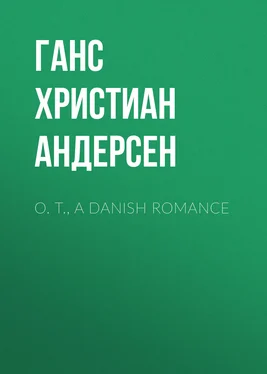

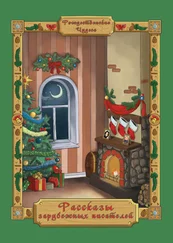
![Ганс Андерсен - Ганс Чурбан[другой перевод]](/books/95480/gans-andersen-gans-churban-drugoj-perevod-thumb.webp)
